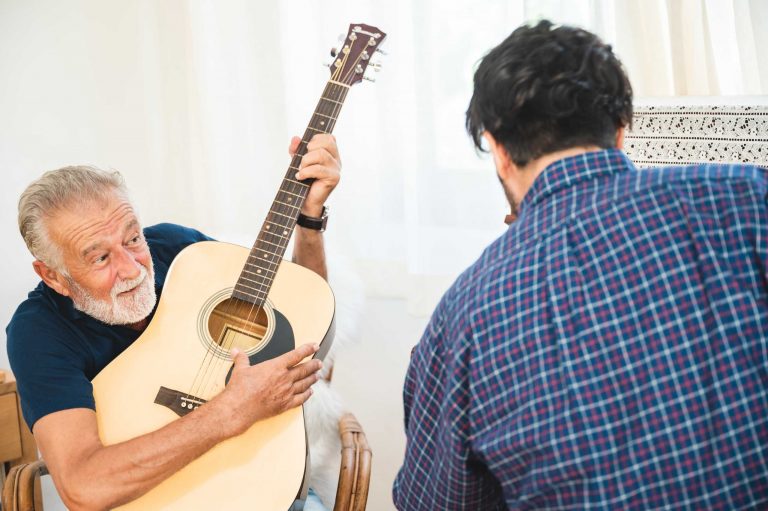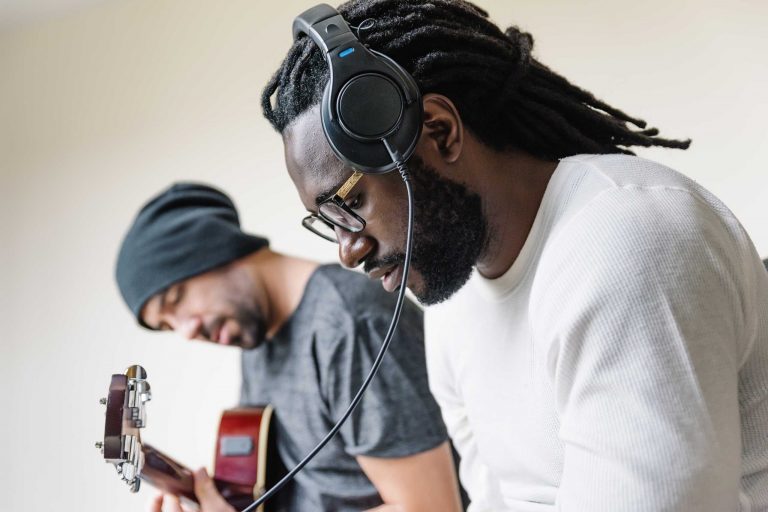
Learning guitar is not just about playing notes—it’s about practicing smartly. Efficient practice helps you progress faster, avoid frustration, and enjoy the process of creating music.
1. Set Clear Goals
Before every practice session, define what you want to achieve:
- Short-term goals – Example: Master a chord transition or a simple melody.
- Long-term goals – Example: Play a complete song or perform for friends.
- Track your progress – Note improvements to stay motivated and focused.
Clear goals give your practice direction and make each session productive.
2. Warm-Up Exercises
Warming up is crucial to prevent strain and improve finger agility:
- Finger stretches – Simple stretches for hands and wrists before playing.
- Chromatic exercises – Move fingers across frets to build coordination.
- Strumming patterns – Practice different rhythms to warm up the right hand.
Starting with warm-ups prepares your fingers and mind for the practice ahead.
3. Break Practice Into Segments
Long practice sessions can be tiring and ineffective. Divide practice into segments:
- Chords & Finger Placement – Focus on clean transitions.
- Melodies & Songs – Practice specific sections of songs.
- Techniques & Exercises – Work on scales, picking, or rhythm patterns.
Short, focused segments help retain attention and reinforce learning.
4. Use a Metronome
Timing is essential for guitar playing:
- Start slow to ensure accuracy.
- Gradually increase speed while maintaining clean notes.
- Helps internalize rhythm and improve consistency.
A metronome ensures that your playing is steady and musical.
5. Record and Review Your Playing
Listening to your own playing is one of the most effective learning tools:
- Record sessions – Capture progress and identify mistakes.
- Analyze critically – Note areas needing improvement.
- Compare over time – Track growth and celebrate achievements.
Reviewing recordings accelerates improvement and builds confidence.
6. Take Breaks and Stay Relaxed
Over-practicing can cause fatigue and injury:
- Short breaks – Step away every 20–30 minutes.
- Relax your hands – Avoid unnecessary tension.
- Stay positive – Enjoy the learning process, don’t focus only on mistakes.
Relaxed practice improves both physical comfort and musical expression.
7. Incorporate Songs You Love
Playing music you enjoy keeps motivation high:
- Choose simple versions of favorite songs.
- Experiment with melodies and chord variations.
- Gradually increase difficulty as you improve.
Enjoyment fuels consistent practice and long-term learning.
By setting clear goals, warming up, segmenting your practice, and staying relaxed, you can make your guitar sessions productive, fun, and effective. Every small step in practice brings you closer to playing your favorite songs confidently.



